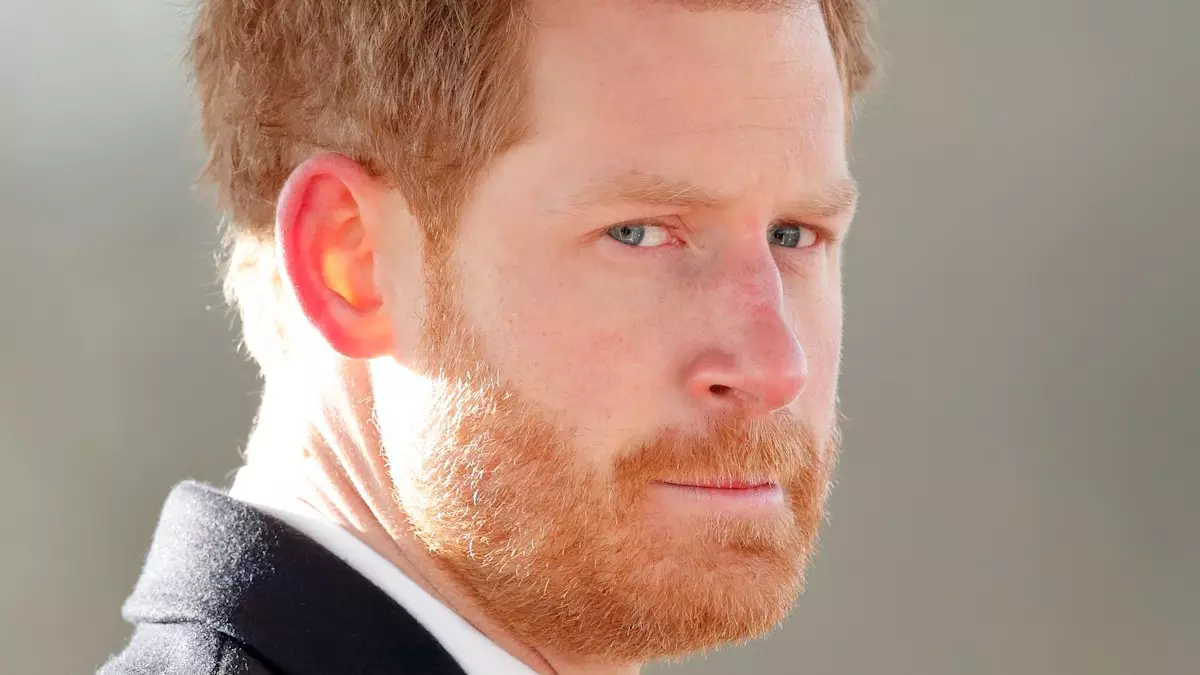The forthcoming return of Prince Harry to the UK for his trial involving The Sun’s publisher, News Group Newspapers (NGN), is not just a legal proceeding; it reflects deeper issues regarding privacy, security, and the relationship between the royal family and the press. As the Duke prepares for this potentially transformative moment, the implications of the trial extend beyond the courtroom, shedding light on the ongoing challenges faced by public figures in safeguarding their personal space in an increasingly invasive media landscape.
Scheduled to take place at the High Court, Prince Harry’s trial is emblematic of a broader struggle against alleged unethical journalistic practices. Alongside former Labour deputy leader Lord Tom Watson, the Duke of Sussex alleges that NGN engaged in unlawful information-gathering, primarily through phone hacking and other privacy invasions. This accusation is a serious charge against a major media entity, which continues to deny any unlawful conduct. The trial, which is expected to last around seven weeks, will allow Harry to confront the embodiment of his grievances: a barrister representing the newspaper group who will attempt to dismantle his claims.
This is not Harry’s first foray into court over media interactions—his previous testimony against Mirror Group Newspapers showcased his commitment to holding the media accountable for perceived injustices. The psychological toll of navigating a legal system bent on deep scrutiny can’t be overstated, especially as Harry will indeed undergo cross-examination, a process that often tests the resilience of even the most confident individuals.
In December 2023, during a summit in New York, Harry shed light on his motivations for pursuing this case. He articulated a desire for accountability, highlighting the struggles of around 1,300 individuals who had settled various claims against media organizations. This sentiment echoes a broader need for justice in the wake of pervasive media infractions. As someone who has long battled against press intrusion, his quest enhances the narrative of a man fighting not only for himself but also for others who may not have the means to publicly challenge such powerful institutions.
Accountability is a central theme for Harry, especially as he repeatedly emphasizes that these legal actions are designed to expose and curtail the unethical practices often employed by certain sections of the press. His assertion that he is “the last person that can actually achieve that” underscores a sense of duty that may come from his unique position as a member of the royal family turned advocate.
The backdrop of this trial is marked by the Prince’s ongoing concerns regarding his family’s security, issues that seem intertwined with his emotional and physical abandoning of royal obligations. Since relocating to California in 2020, Harry and his wife, Meghan Markle, have consistently pointed to the threats they perceive from the media. The Duke’s recent legal challenge against the Home Office concerning taxpayer-funded security underscores the seriousness of these concerns.
In an emotional witness statement, Harry expressed a deep attachment to the UK, reiterating its integral role in his life and the lives of his children. This anguish regarding their safety serves as a poignant reminder of the pressures faced not only by the Duke but also by his family, driving a wedge between their desire for public engagement and the perceived risks involved.
With Harry expected to travel alone for the trial, the absence of Meghan brings added complexity to their already strained relationship with the UK. Her reluctance to return stems from various factors, including safety concerns. Notably, the pattern of their palace exits and re-entries invites speculation about the future of their royal responsibilities and their status in the eyes of the public and the family.
The couple’s dynamic serves as a strategic balancing act, wrestling with their commitments to royal heritage and personal safety. Meghan’s last visit to the UK in September 2022, which coincided with significant events, only emphasizes the nuanced relationship they have with both their roles and the media narrative surrounding them.
Prince Harry’s duel against News Group Newspapers signifies much more than a legal fight; it reflects a multifaceted struggle involving privacy, safety, and legacy. As he approaches this trial, one cannot overlook the broader implications of his story, marked by personal sacrifice and a resolute stand against unwarranted media intrusion. The upcoming proceedings not only question the legality of past media practices but serve as a rallying cry for those demanding accountability and greater respect for personal privacy in an age often dominated by sensationalism. The outcome of this trial will undoubtedly shape the future landscape of media ethics and royal engagement, marking a pivotal moment in Harry’s ongoing journey for justice.

